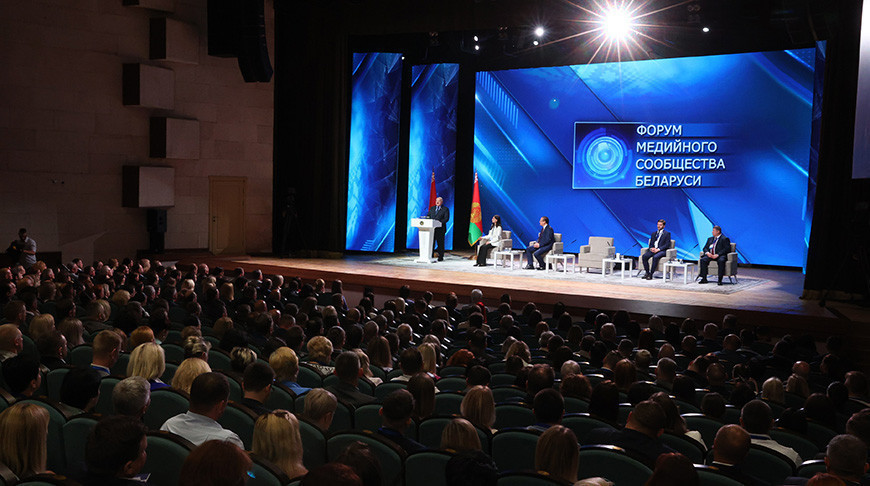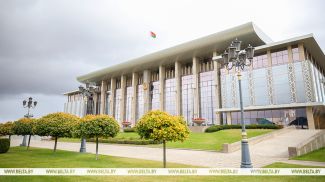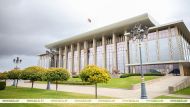
MOGILEV, 28 May (BelTA) – Belarusian journalists are now fighters, defenders, strategists and tacticians, Belarusian President Aleksandr Lukashenko said addressing the Belarus Media Forum in Mogilev on 28 May, BelTA has learned.
“You and I live in a very challenging, but interesting time. This is particularly true for those who literally chronicle the history of our country and their own life,” said Aleksandr Lukashenko.
The head of state noted that the forum will focus on journalists’ impact on the transformation of society. This topic has always been relevant.
“You and I live in a very challenging, but interesting time. This is particularly true for those who literally chronicle the history of our country and their own life,” said Aleksandr Lukashenko.
The head of state noted that the forum will focus on journalists’ impact on the transformation of society. This topic has always been relevant.
“It is great that you are analyzing your impact and critically assess your role. We talk about this impact of journalists and others all the time. The time we are living in has pushed journalists to the forefront and made the media community a powerful factor in political discourse. I often meet with media workers in all kinds of formats, I see many of them almost every day, which is part of our work. I know that you feel the zeitgeist of the era of information confrontation, or the so-called war of meanings, like no one else. You are living and breathing it. In this reality, you are fighters, defenders, strategists, and tacticians, and information is a resource, a commodity, and a weapon,” Aleksandr Lukashenko emphasized.
Yet, when the country is in the crosshairs of aggressive propaganda, journalists should not be the only fighters, the president noted. Therefore, the media forum also gathered managers and employees of national and regional media outlets, bloggers and communications experts, representatives of universities and ideology workers, press secretaries of central government bodies and organizations, as well as representatives of government agencies in charge of information policy.
“In a word, these are people who shape the information policy and defend the information sovereignty of the state in line with their official responsibilities,” added the head of state.
“In a word, these are people who shape the information policy and defend the information sovereignty of the state in line with their official responsibilities,” added the head of state.













